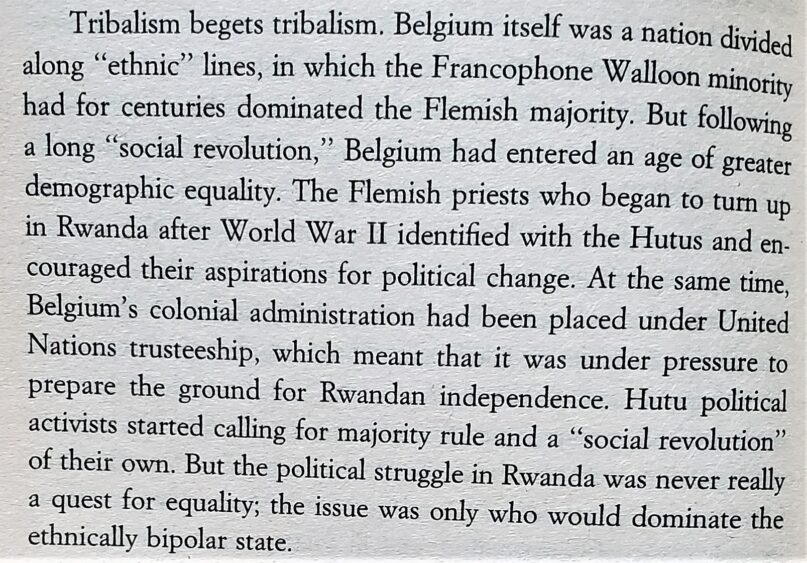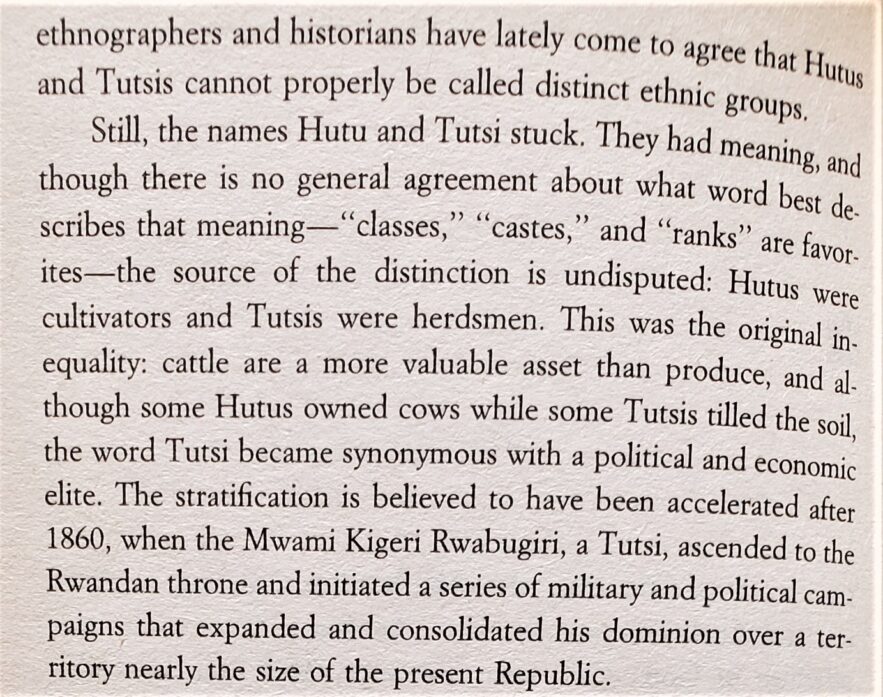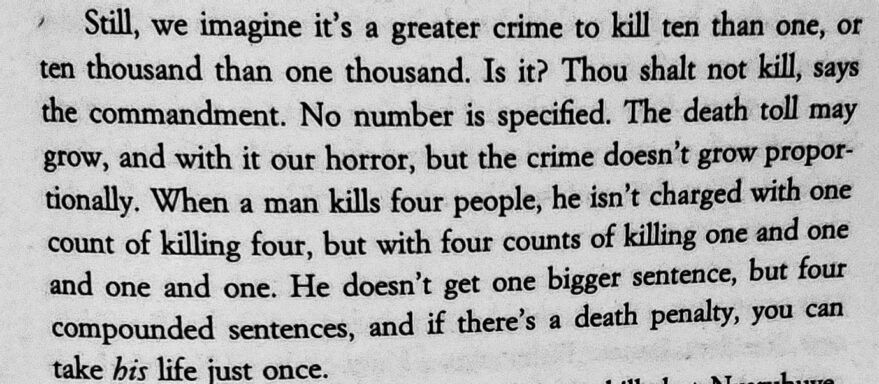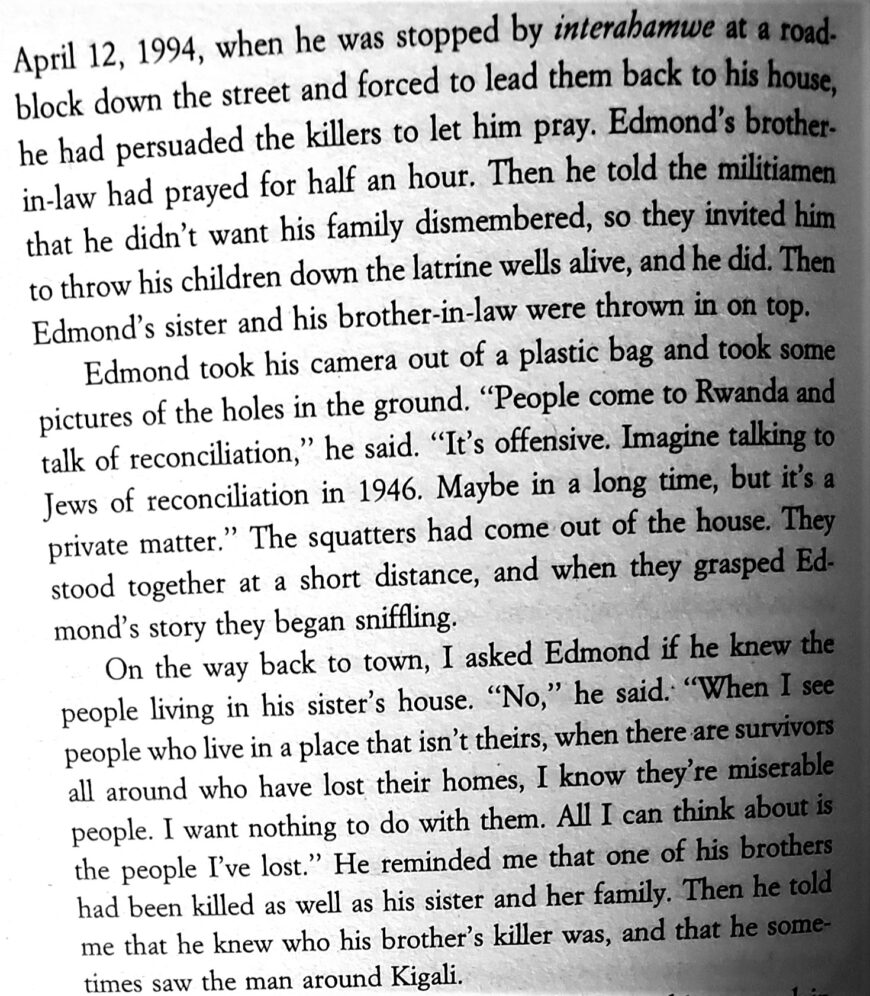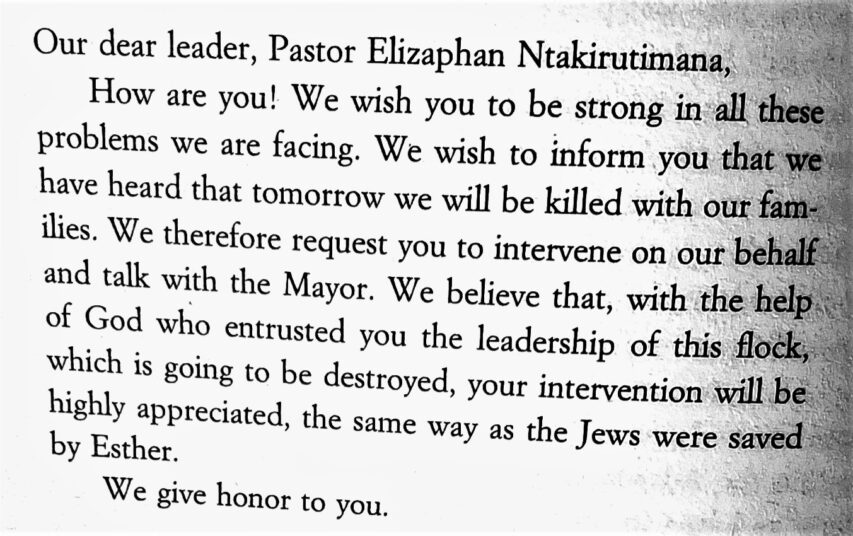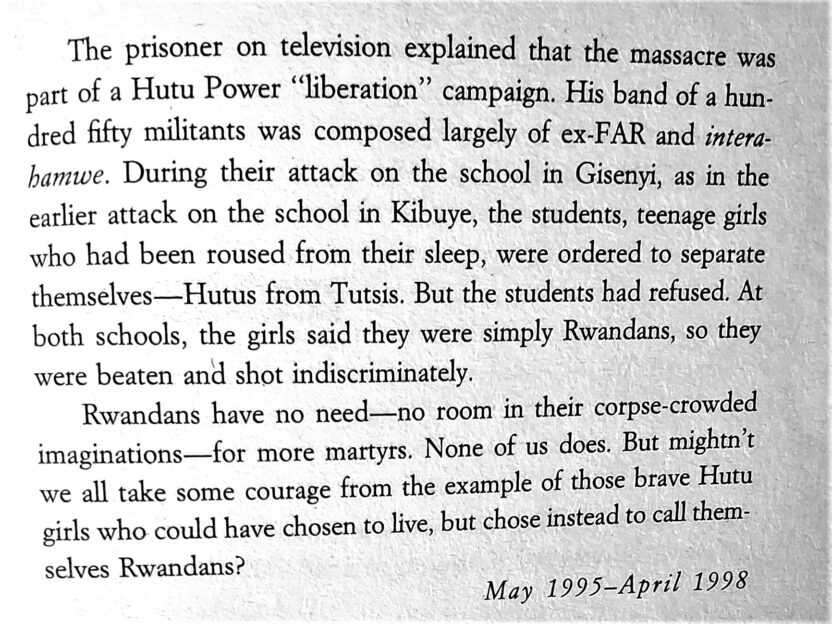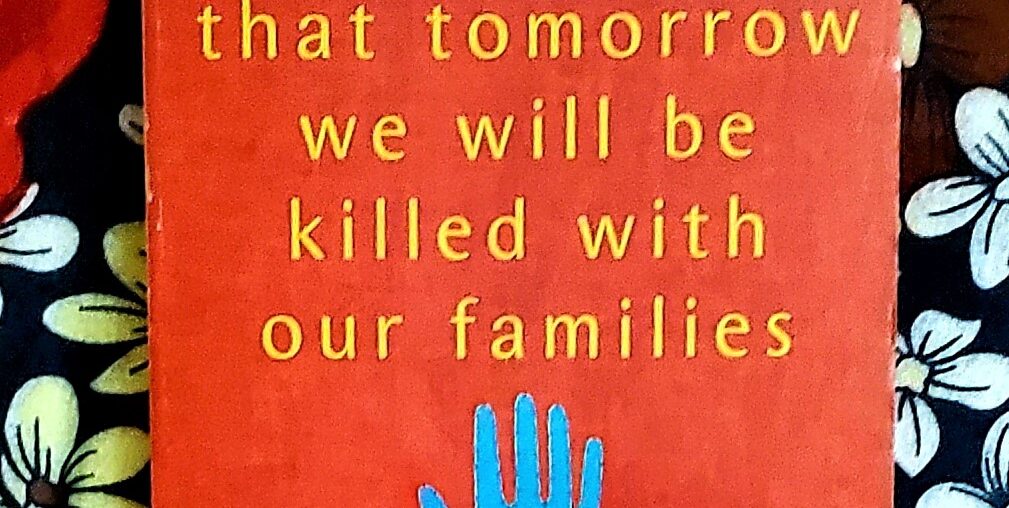The awkward title of this book takes its cue from the lines of that infamous letter that serve Tutsi pastors of the Seventh Day Adventist church wrote to their church president who happened to be a Hutu – Pastor Elizaphan Nkakirutimana. A chilling letter in the midst of an even more chilling genocide that left blight in the face of humanity. Killing eight hundred thousand people in as short as a hundred days is as evil as it has ever gotten and while everyone wonders why it happened in the first place, I have not read or heard a convincing explanation for the genocide. Ethnic tensions are not sudden eruptions. They are often built up over time and the final act is often the culmination of decades of hate and distrust.
What this book excels in is tracing the history of the Rwandan nation and showing how the stratification fault lines started and how subsequent actions led to 1994. Before 1994, there were 1895, 1959, 1963 and a few more sad interludes. A common thread that runs through Rwandan history is conformity. Like Nkurunziza told the author that “conformity is very deep, very developed here. In Rwandan history, everyone obeys authority. People revere power, and there isn’t enough education. You take a poor, ignorant population and give them arms and say it’s yours. Kill. They’ll obey. The peasants, who were paid or forced to kill were looking up to people of higher socio-economic standing to see how to behave. So the people of influence or the big financiers, are often the big men in the genocide. They may think they didn’t kill because they didn’t take life with their own hands but the people were looking up to them for their orders. And, in Rwanda, an order can be given very quietly.” The excerpt above is one of the most insightful anecdotes I read in the book. It not only captured Rwanda from the viewpoint of a person who lived through the genocide, but it also explains how Rwandans have been able to conform to this image of a unified nation devoid of ethnic lines since Kagame’s presidency. Dissent is suddenly a taboo and everyone seems to tow an official line. You begin to wonder if the nation has truly healed or the strong arm of the man in power is holding it all together. Extrapolating the same excerpt into the Nigerian situation where ethnic nepotism is currently running wild and tribalism is almost an official government policy, one begins to wonder whether ingredients like poverty and illiteracy do not mean that we are seating on a keg of gun powder? A situation where peasants are most excitable by ethnic jingoistic cries. Lessons must be learnt from the past as there is no guarantee that the international community would not look away like they did in 1994, if such happen again elsewhere.
3.5/5
